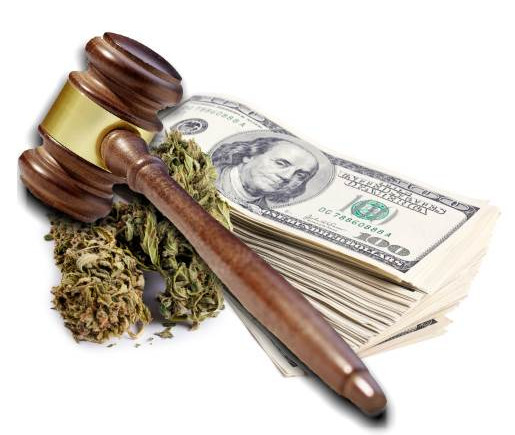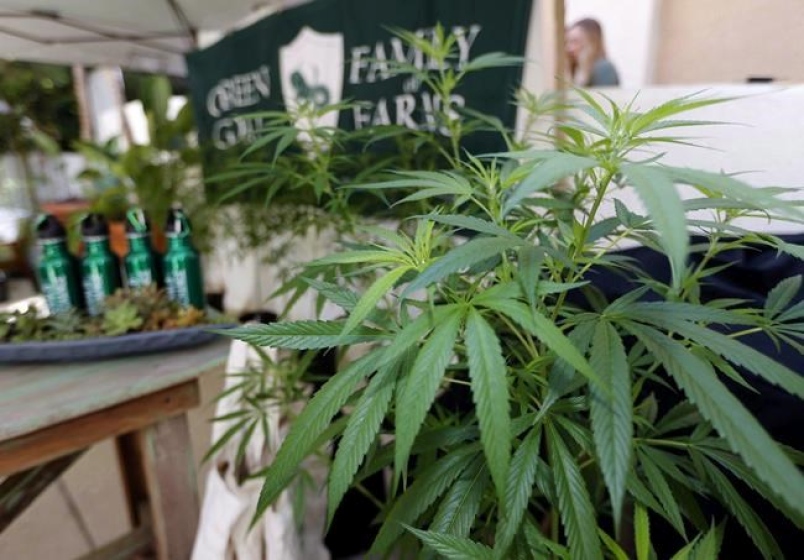Democratic New Jersey lawmakers spent part of Tuesday going over the fine points of a bill that their leaders say is the almost-final, soon-to-pass vehicle for allowing anyone 21 and older to buy and consume marijuana. After missing earlier, informal deadlines for mustering enough votes to pass a bill that Gov. Phil Murphy would sign, Senate President Stephen Sweeney maintained that his Oct. 29 deadline remains within sight.
But the two-hour session among Democratic senators was fractious by many accounts, and a bill would not pass if five or more of the 25 Democratic senators dissent and no Republican votes in favor. And there’s no guarantee Murphy would sign a bill with a tax rate he deems too low, or that doesn’t go far enough in redressing racial inequities in previous convictions for marijuana crimes.
So here’s where things stand now with legalizing marijuana in New Jersey:
The bill
The latest draft of the legislation, dated Oct. 4, spans 135 pages and addresses taxes, regulations and eligibility to operate a marijuana business. The Statehouse is littered with the corpses of other legalization bills, but Sweeney and the Legislature’s most indefatigable legal weed champion, Sen. Nicholas Scutari, insist that this bill — which has not been formally introduced or made public — is the tool for putting weed in the hands of consenting adults.
The bill would impose a 12 percent tax on marijuana sales, with cities and towns allowed to add a 2 percent tax of their own. The previous version of the bill envisioned an initial 10 percent tax rate that would reach 25 percent over four years, with the lower initial rate intended to strangle the black market by making legal weed more competitive with illegal weed.
Murphy has called for a 25 percent tax, and it’s unclear whether he would sign a bill with a significantly lower rate.
During a public appearance Wednesday, Murphy seemed to back off the 25 percent rate he assumed in the budget he introduced in March.
“I’ve never hung my name on any tax rate,” Murphy said, adding that the rate is “to be determined.”
Murphy said he had plans to meet with Sweeney and Assembly Speaker Craig Coughlin Wednesday afternoon to discuss the proposal.
The bill would allow municipalities to opt out of legal marijuana sales, but only for five years at a time. And if communities don’t act, the bill would allow marijuana businesses within their borders — although subject to local rules on location and hours.
The bill also attempts to address racial inequities in marijuana arrests — African-American casual users are three times more likely to be arrested than whites even when usage is comparable — by setting a 25 percent goal of marijuana business licenses for residents of “impact zones.” Such zones are determined by poverty rates and other factors, but are not explicit racial set-asides, which are not allowed under state law.
The bill also would provide for expungement of past marijuana convictions, although it wouldn’t be automatic. People wishing to purge their criminal records of minor marijuana offenses still would need to petition a court. Scutari said lawmakers are working to identify funding for people who can’t afford to pay a lawyer or cover filing fees.
The national landscape
Twenty-nine states, including New Jersey, allow adults to consume marijuana for medical conditions such as chronic pain.
Eight states currently permit adults to buy and use marijuana for any reason, while Vermont allows adults to get high on their own supply. The eight states with legal marijuana sales all got to that point through ballot measures, beginning with Colorado and Washington in 2014. Vermont was the first state to allow non-medical marijuana through a vote of the state legislature. New Jersey would be the second.
In next month’s elections, voters in Michigan and North Dakota will decide whether to legalize marijuana for all adults, while Utah and Missouri are considering medical initiatives.
Closer to New Jersey, New York Gov. Andrew Cuomo and lawmakers have been tiptoeing closer to legal weed, but they lag behind New Jersey.
What lawmakers say
Coming out of Senate and Assembly caucus meetings Tuesday, most Democratic lawmakers expressed optimism that New Jersey is on the cusp of legalization. Sweeney held to his Oct. 29 deadline for passing a bill, while Coughlin said lawmakers made “great progress” in four hours of discussions. Sweeney admitted that the discussions had gotten animated, attributing that to the “passion” by legalization backers and foes.
Scutari said the latest bill is on track to pass — though he predicted the same for an earlier bill, in June, that never came up for a vote.
Sen. Ronald Rice, who heads the Legislative Black Caucus and opposes legalization, complained that his side was being railroaded by legal weed proponents. He said the bill doesn’t go far enough to ensure racial and social equity, and predicted that some African-American and Latino lawmakers would not approve it in its current form.
What’s next
Though the bill has not been formally introduced or publicly discussed, it still could come up for a vote Oct. 29. Many of the key concepts, such as the tax rate and regulatory framework, have been discussed — publicly and privately — for months. And Murphy’s well-known public position in favor of legalization could make a veto precarious.
Even if a bill passed and was signed into law this month, experts say it could be at least a year before stores start opening with buds, leaves, tinctures and marijuana-infused candies, baked goods and beverages. The state’s existing six medical marijuana dispensaries, soon to expand to 12, could start selling the product for non-medical use earlier, though patients would get priority.
Murphy had not committed to the end-of-month deadline.
“It’s more important to get it right than get it fast,” he said.
Credit: www.northjersey.com










